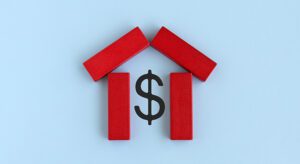Saturday Strategy
Mortgage FAQ's, did you knows and much more...
Bridge loan comparisons
We know many of you are navigating the tricky waters of selling one house and buying another. Whether you're considering this for your primary residence or investment properties, we have a solution that could be a game-changer.
Here's a quick rundown of the key points:
Bridge Loans Explained: Our Bridge Loan Program allows you to secure a loan on the house you're selling. This means you don't have to worry about leaving your current home or having a mortgage on it.
Investment Properties Included: This isn't just for your primary residence. It's also designed for investment properties, giving you flexibility and options.
Cash Buying Power: With this bridge loan, you can use the secured funds to buy your new property in cash. No need to identify your next home upfront.
Interest Rates Vary: Keep in mind that interest rates may vary based on factors like credit scores, so we'll work closely with you to find the best solution.
Not All Lenders Offer This: While this fantastic program is available, it's not offered by every lender. It's essential to do your homework and work with experts like us who understand the intricacies.
Check out are comparison I ran comparing a new first mortgage, 1st mortgage and HELOC and a bridge loan. -- https://mcedge.tv/46ed8o
P.S. Can I count on you to call us when any friends, family or coworkers are looking to buy, sell or refinance a home? We'd love to help! You can just text/call me at 480.553.8770.
Home Price Deceleration Doesn’t Mean Home Price Depreciation
Kevin Brierton – 6.16.2022 Experts in the real estate industry use a number of terms when they talk about what’s happening with home prices. And some of those words sound a bit similar but mean very different things. To help clarify what’s happening with home prices and where experts say they’re going, here’s a look at a…
A Majority of Consumers Say It’s a Good Time To Sell Your House
Kevin Brierton – 6.15.2022 If you’re a homeowner thinking about selling your house, you’re probably looking for the best time to make your move. That means you’re likely balancing a number of factors, like your changing needs, where you’ll go when you sell, and today’s mortgage rates in order to time it just right. According to recent data,…
Is the Housing Market Correcting?
Kevin Brierton – 6.14.2022 If you’re following the news, all of the headlines about conditions in the current housing market may leave you with more questions than answers. Is the boom over? Is the market crashing or correcting? Here’s what you need to know. The housing market is moderating compared to the last two years, but what everyone needs…
P.S. Can I count on you to contact me if you hear that a friend, family or coworker is looking to buy, sell or refinance? Call/Text 480.553.8770 - We'd be honored to help them too!










